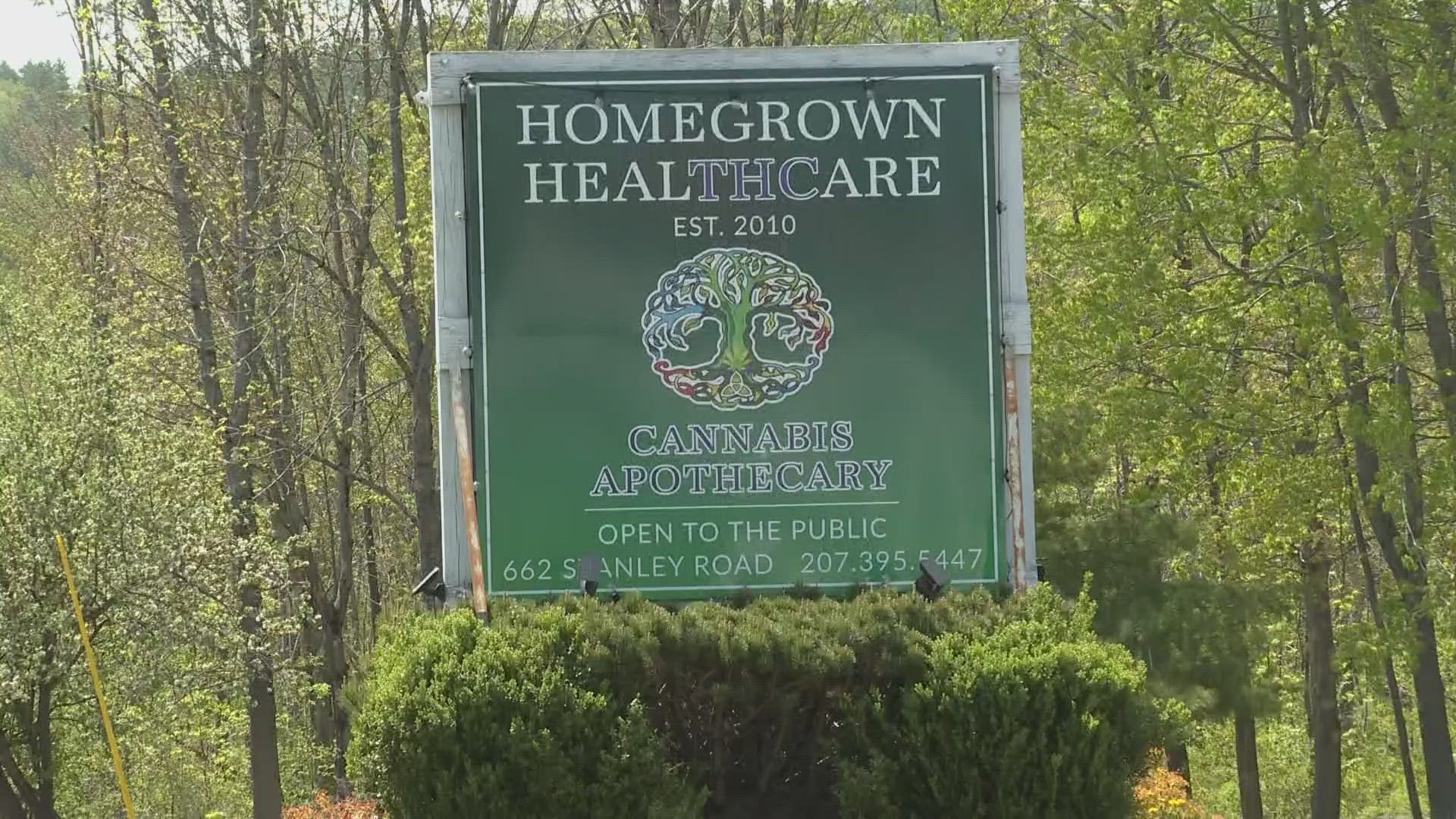PORTLAND, Maine — Maine is continuing to see a surge in recreational cannabis sales. According to a new report released by the Maine Office of Cannabis Policy (OCP), Maine nearly doubled the number of adult-use cannabis sales from 2022 to 2023.
"There's always rapid growth at the beginning, and Maine is still experiencing that. I think a lot of people are switching from the illicit market into the legal, regulated market," John Hudak, director of Maine OCP, said.
According to the report, in 2022, Maine recorded more than $158 million in total sales in the adult-use market, which is up from more than $81 million in 2021.
That growth is continuing into 2023. Through April of this year, OCP data shows more than $61 million in adult-use sales.
"This type of growth is not sustainable in the long term, you're eventually going to hit a ceiling, but right now we're seeing that type of rapid growth. There are more places, there are more adult-use retail stores coming online every month, and so the availability throughout Maine is increasing," Hudak said.
However, while one portion of the industry is thriving, change can be felt in the medical cannabis industry in Maine. According to another report issued by the OCP, 1,350 caregivers have exited the state's program between the end of 2021 through the end of January this year. That exodus has resulted in a net loss of more than 800 caregivers.
"We're in a small town, there's six other caregiver storefronts, so there's a lot of competition in a small area," Catherine Lewis, co-owner of Homegrown Healthcare of Maine and co-chair of the Medical Cannabis Caregivers of Maine Trade Association, said.
Lewis said she operates two cannabis businesses in central Maine and recently changed the license of one business from caregiving to adult-use, and another from caregiving to a medical dispensary.
Lewis also said changes in regulations to the medical market have allowed an influx of out-of-state medical cannabis, which has in turn lowered prices and made it more challenging for businesses. She adds that since municipalities have the option to opt out of allowing cannabis businesses, many are concentrated in the same areas.
"We have a lot of grows that are saturating the market with flower, so they're reducing rates," Lewis said.
"There's a lot of competition, there's a lot of product out there, there are more stores than ever. That's certainly happening. And most notably, I think we're seeing a lot of out-of-state companies coming in, and that's certainly affecting things as well," Edward Phipps, owner of Casco Botanical and board member of the Maine Craft Cannabis Association, said.
Lewis and Phipps agree, however, that even in a lucrative adult-use market, there's room for a successful medical industry to best support patients as well.
The two hope as discussion surrounding regulation continues, that costly restrictions are not put in place that make it even harder for small, local caregivers to remain in business.

